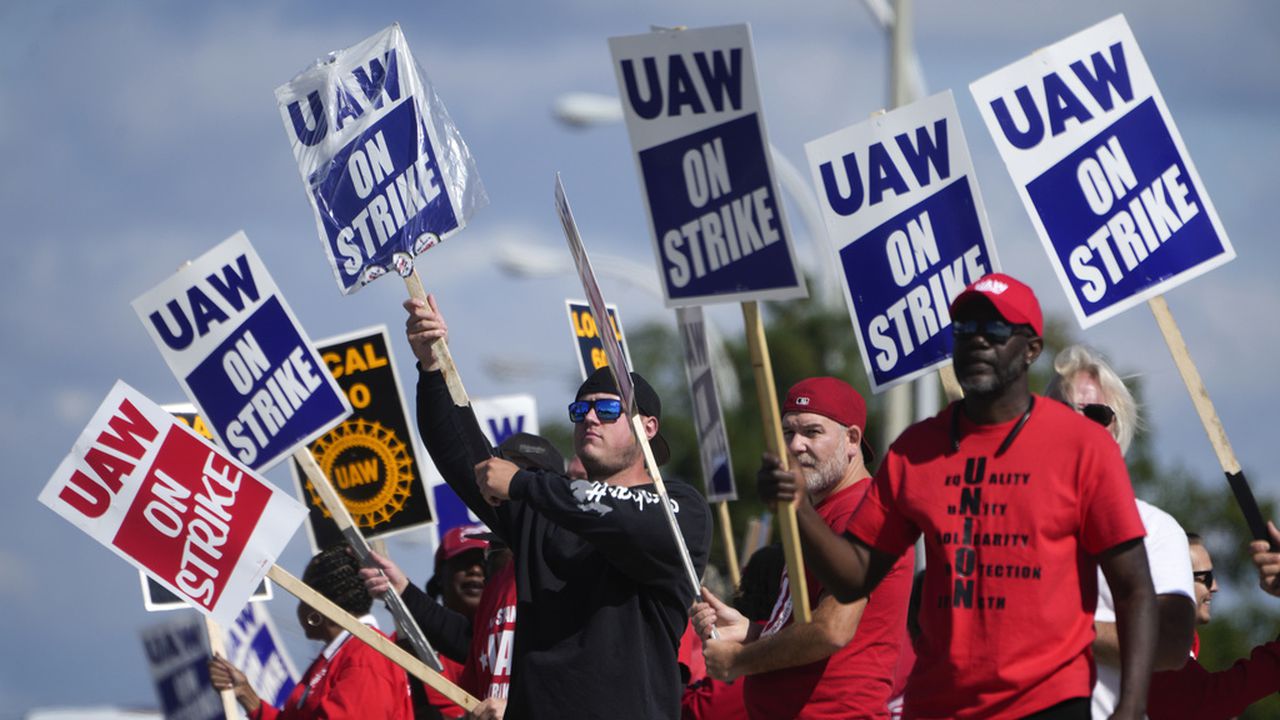What the Biden administrationâs involvement in UAW negotiations could mean for workers
President Joe Biden recently announced that he’d be sending two administration officials to help facilitate talks in Detroit as the United Auto Workers union (UAW) strike continues.
Acting Labor Secretary Julie Su and White House Senior Advisor Gene Sperling had been involved in the strike since the beginning, Biden said, adding that the officials will be offering their support in helping the UAW and the big three automakers — Ford, General Motors and Stellantis — come to a resolution.
But experts have different opinions about whether that tactic is likely to work.
Lynne Vincent, assistant professor of management at Syracuse University, said that Shawn Fain, UAW’s president, doesn’t seem pleased with Biden’s decision to involve his administration in discussions.
“Fain seems to be uninterested in having Su and Sperling at the negotiation table or acting as mediators for the conversation,” Vincent said. “Fain and the UAW want the conversation to happen between the union and the companies. Not the union and the companies and the White House.”
The UAW decided to begin striking on Friday because the workers were unable to come to a consensus with their employers by September 14. The demonstration has been dubbed the “Stand Up Strike.” There are currently 13,000 workers in Detroit that are striking, which is unprecedented for the union.
Workers want a 36 percent pay raise and increased job security as well as a 32-hour, four-day workweek with no pay cuts.
The union cited how the companies’ chief executives saw salary increases of 40 percent over the last four years, which is why they chose the 36 percent figure.
On Tuesday, workers began demonstrating at plants in Ohio, Missouri and Michigan. It marks the strike’s fifth day.
Monday evening, Fain released a video message announcing that if serious progress is not made by noon Friday that more UAW local unions across the country will be called on to strike. The union has 600 chapters in the U.S., Canada and Puerto Rico.
Fain previously called the initial offers brought by the companies an “insult” and “outrageously unrealistic.” Prior to the strike, Ford offered a 20 percent pay increase over four years, while GM offered 18 percent and Stellantis offered 17.5 percent.
“We know the companies can afford to make things right,” Fain said, referencing how the companies’ generated a combined $21 billion in profits during the first six months of 2023.
“Record profits mean record contracts.”
Dr. David Bieri, associate professor of urban affairs and planning at Virginia Tech, doesn’t think the UAW is likely to reach a deal under their current terms — even with President Biden stepping in.
He called the UAW’s definitive demand for a 36 percent pay rise “nothing short of insane.” Bieri said that an increased rate of that amount would put Detroit auto workers at about $130 an hour, including wages and benefits.
Meanwhile, he said, Tesla’s employees earn about $45 an hour.
Bieri doesn’t believe that Biden’s decision is likely to make a difference on the strike’s outcome.
He also blamed the president’s recent policies for partly causing the situation, including the Inflation Reduction Act, CHIPS and Science Act and the Infrastructure Investment and Jobs Act.
All of the pieces of legislation authorized billions for positions that the Biden administration advertised as “good-paying union jobs.”
Yet, inflation has continuously risen since 2021, with prices for certain goods increasing by 20 percent. Wages are currently increasing at a pace faster than inflation, but that’s mostly because inflation levels have lowered, according to data from the U.S. Bureau of Labor Statistics.
